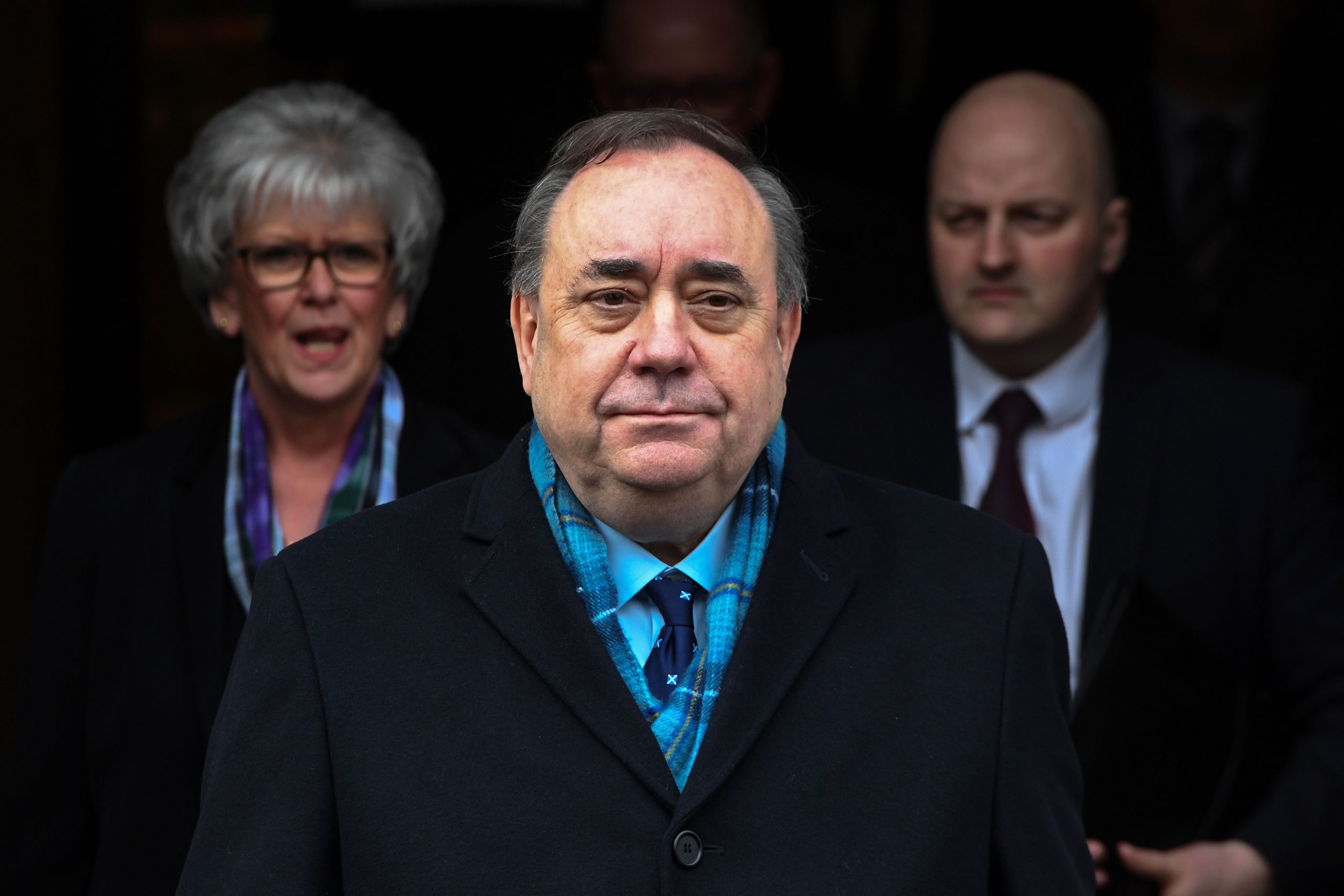
Just because Alex Salmond’s been quiet, don’t think for a minute that he’s gone away. Before he was so rudely interrupted by the coronavirus pandemic, the former first minister made clear he will have his revenge on those he is said to blame for conspiring to bring him down.
Salmond was cleared of all sexual assault and attempted rape charges at the High Court in Edinburgh in March. Having described the accusations as “deliberate fabrications for a political purpose”, and having not been able to provide evidence of the alleged conspiracy in court, he promised “those facts will see the light”.
To that end, the ex-SNP leader has been working on a book about the affair, likely to be published later this year. According to one source with knowledge of its progress, “so far it’s a bit like Father Ted’s Golden Cleric speech: ‘And now, liars…’”.
The main targets for Salmond’s ire are thought to be the team around his successor Nicola Sturgeon – including her husband, SNP chief executive Peter Murrell – as well as senior civil servants. The law prevents Salmond naming his female accusers or publishing any information that could lead to their identification. But the book’s release promises to be an explosive moment for the party and the wider independence movement.
Sturgeon has dismissed her one-time mentor’s conspiracy claim as a “heap of nonsense”, yet he doesn’t lack prominent Nat supporters. The party’s former deputy leader Jim Sillars says Salmond has shown him “compelling evidence” of an organised attempt to prevent his return to front-line politics. Sympathetic MPs include the high-profile Joanna Cherry, who has called for an internal inquiry into how the party dealt with the allegations, and the former Scottish justice secretary Kenny MacAskill, who has talked of “dark forces”.
Sturgeon is formidable, and her reputation is at a high over her handling of the coronavirus crisis, but Salmond’s forthcoming book will doubtless be an uncomfortable experience. Even then, it may be the least of her worries. For some time there has been background chatter among independence fundamentalists about the need to create structures that operate outside the SNP’s control. This has now manifested itself in moves to create breakaway pro-independence parties – and Salmond may have a role to play here, too.
A recent poll for the aggressively separatist website Wings Over Scotland found one in four Scots could support a hypothetical party led by Salmond. This week, the former MSP Dave Thompson announced he is quitting the SNP after 55 years to set up the “Alliance for Independence”, which intends to stand candidates in next year’s Holyrood election.
The voting system for Holyrood gives Scots two votes – one for a constituency MSP and one for a regional MSP, who is elected from party lists. The new party would ask independence backers for this second vote. Because the SNP is so dominant in the constituency section it does less well in the proportional list seats, and therefore the rebels claim they could enhance the number of pro-independence MSPs at Holyrood. Thompson argues his Alliance could win somewhere between eight and 24 seats. MacAskill has publicly supported the proposal to split the vote.
The idea has been given short shrift by the SNP leadership, who argue it would damage the independence cause at a key moment. They have a point. Sturgeon’s detractors might resent it, but she remains the movement’s golden goose. Under her leadership, support for independence has risen above 50 per cent, hitting 54 per cent in recent polls. Another survey found 82 per cent of Scots believe the First Minister has done a good job of dealing with the health crisis. She plays well with the swing voters who might switch from No to Yes – her personal trust ratings are high and the SNP is on course to win an overall majority in next year’s Scottish parliament election.
If Boris Johnson then refuses to allow a second referendum there will be a constitutional crisis – and with the unpopularity of Brexit and of the Westminster government in Scotland, the SNP will be confident of winning that argument and then the subsequent vote.
Leading Nats suspect the rebels are in any case driven by ulterior motives. One is that they view Sturgeon’s approach to securing a second referendum as overly cautious, if not downright regressive, and believe a new party’s presence at Holyrood would allow them to extract commitments from Sturgeon in return for their support.
Then there are those who simply want to see Salmond back at the front. For them, Scotland’s answer to Norma Desmond is the real deal, and his absence since losing his Westminster seat in 2017 is something to be urgently rectified. Under Sturgeon, they argue, the SNP has been run by a tight coterie of allies, excluding those not in the inner circle, and this has led to poor judgements and a monomaniacal approach. The former SNP MP called George Kerevan wrote an article this week in which he criticised the party’s current centrist positioning and called instead for the banks to be nationalised and for it to “abandon the failed neoliberal model”.
One senior party figure describes the proposed breakaway as “something for the nutters”. There is truth in that – it would be cybernat central. But voters do not like division, and it would be reckless for the independence movement to split apart when it is closer than ever to securing its goal. Ego, jealousy and a lack of patience and self-awareness can be fatal in politics – Sturgeon has her flaws, but those are not among them.
See also: Ben Walker on why Scotland would vote for independence if a referendum was held today






